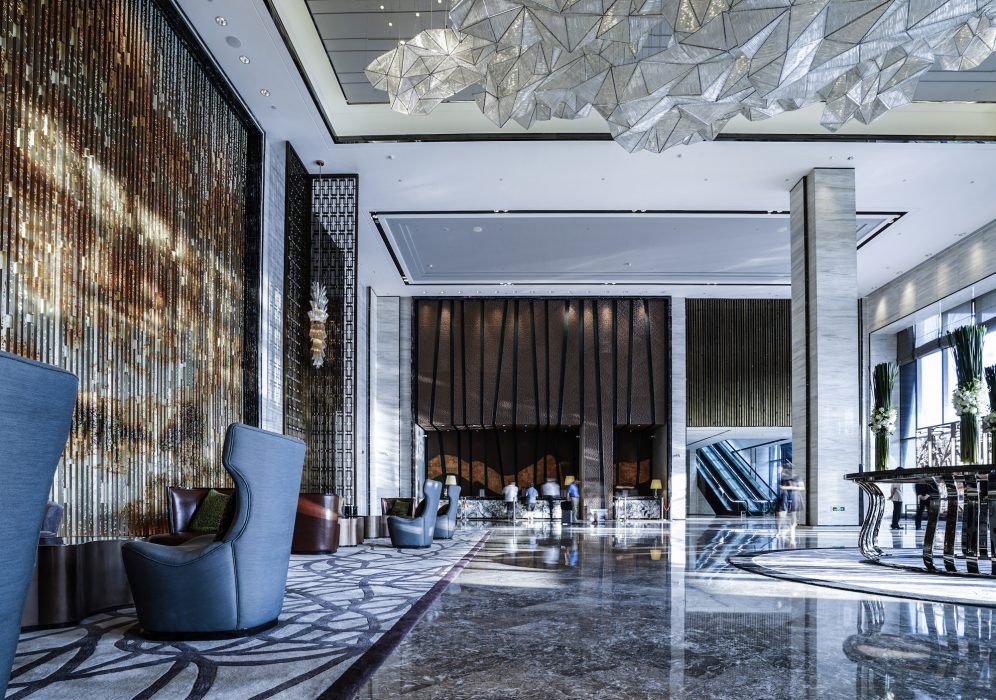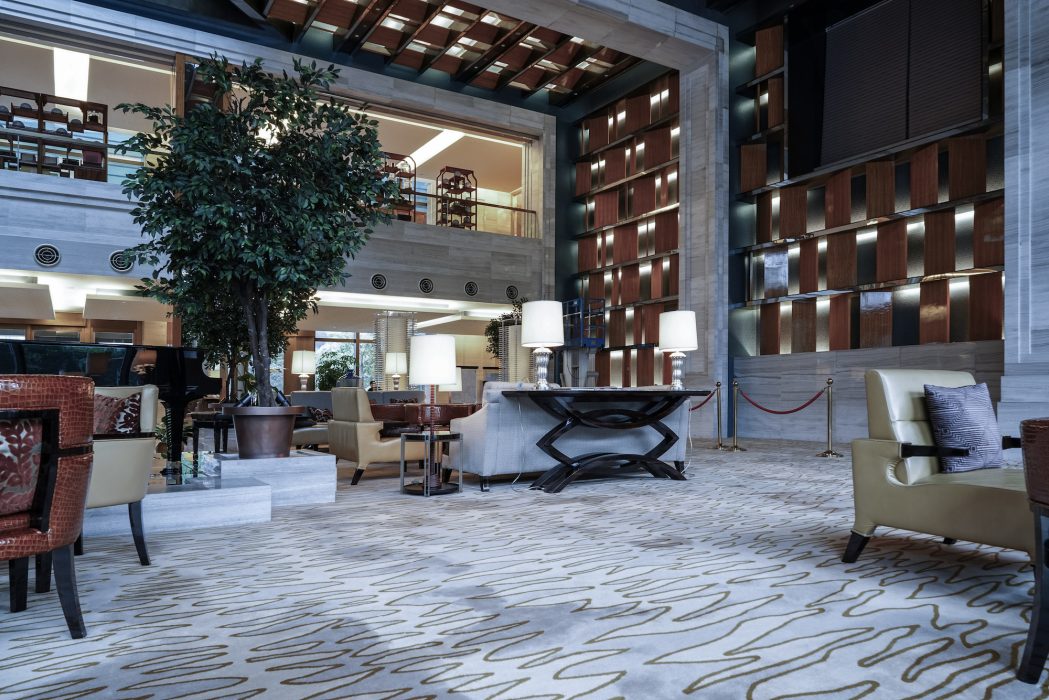Following up on our ‘Music & Hotels‘ report in May we are back with another report at Rightsify that dives into how sound of all kinds affects the hotel guest experience.
‘Why Sound Matters For Your Hotel’ explains some of the psychological and physical effects of music and sound and how they affect the mood and behavior of both guests as well as hotel employees. Everything from the sounds you hear in lobby areas to the background music, all of these have a unique influence.
Introduction:
Whenever a sound reaches our ears, it triggers a chain reaction within our bodies. It affects us physically and emotionally. This, in turn, has a major influence on how we feel and behave. No wonder then, that sound has a big influence on the commercial performance of your hotel.
In this report, we will reveal some of the fascinating ways in which sound influences your guests every day and how you can benefit from it.
Body and Mind:
It is probably no surprise that sound affects us emotionally. After all, this is why you play different music while working out, as opposed to when you are setting the mood for a romantic dinner. The influence of sound (and music as a form of sound) goes much deeper though. To begin with, we can distinguish between a physical and a psychological response.
Physical:
Here is a fun experiment you can do yourself: Put on a pair of headphones on high volume (please stay within the ear-healthy range though). Now search for some Speed Metal music on Youtube and sit back. Regardless of whether you enjoy this particular genre, you will detect a pretty profound physical effect. A pressure on your chest indicates speeding heart and breath rates.
A shot of cortisol and adrenaline will make you physically more alert. This is the fight/flight response to a stressful trigger. A feeling you will translate as annoying if you dislike the music and as exciting if you enjoy this style. All the sound around us has an impact like this, except you might usually be unaware of it.
Psychological:
Music can make you feel any complex blend of emotions. But it can also trigger strong memories. The first chord of your favorite song from your high school years can teleport you back in time within a second. Someone else’s ringtone from a phone you used to have years ago, can trigger an instant “Where’s my phone, I have to pick up!” response. And it is not just music. The sound of that particular lawnmower your dad used to have, can bring you back to your infancy in an instant.
But the psychological effects of sound go even beyond that. Sound strongly influences our cognition. The wrong sound in your office can reduce your productivity by as much as 66%, according to some experts. In fact, over time it can be detrimental to your health. Ever noticed how profoundly soothing it is to hear birdsong or a babbling brook? Give it a try while doing work! There are free nature recordings all over the web. Time to get rid of those noisy printers and phones.
Valuable Sound:
Think of the soundscape of your hotel as a painting. In order to create something that can truly shine bright, you need to start with a blank canvas. In soundscaping, this means cleaning up your hotel from any harmful or unwanted sound. In the ideal world, the end result is a set of spaces in which all sound is valuable and all redundant noise is removed.
There are some amazing quick wins you can implement:
– Vacuum when the majority of guests are out
– Set the loud lobby phones to quiet
– Use absorbing ceiling tiles wherever possible
– Have a careful look at which doors and windows remain open and which do not
– Consider noise levels when procuring systems such as airconditioners and appliances
– Opt for thick, heavy drapes and carpets to absorb more noise
You will notice that the atmosphere becomes significantly more pleasant and relaxing which will result in happier guests and more productive employees.
The Halo Effect:
Since the world around us is infinitely complex, we have to make mental shortcuts to keep it manageable. So we puzzle together whatever pieces we have, to create an image of whatever is in front of us. An assertive looking person is probably a good leader, a person in a lab coat is probably trustworthy, a cost price displayed in red is probably pretty cheap. This is what is long known as the Halo effect, where one cue is used to make an overall judgement. (Thorndike, 1920)
This is one reason why music in hotels is such an important element. Your guests cannot close their ears when entering your hotel. So providing them with a strong indicator of what you are all about, in the form of music, is a great idea. Is your hotel a soothing oasis where people can hide away from the busy daily life? Find music that communicates that feeling. Are you the most hip and happening venue in your city? Play music that leaves no doubt about it. It will help cement your desired image from the very moment of entry, until checkout.
The Value of Sound:
Speaking of your image, the psychology behind it is pretty simple: the more environmental cues point in the same direction, the stronger and more positively this image will be perceived. You have probably got your decor just right. Your people fit it well. By adding a musical backdrop that conveys the same message once again, the entire experience becomes clear and pleasant.
This point is made clear by a study (Matilla & Wirtz, 2001) where different combinations of scent and music were tested in a shop. When the music and scent fitted each other well, pleasure went up by almost 10%, while impulse purchases went up by nearly 80%! So it pays off to ensure you deploy every means at your disposal to convey your central brand image. Other studies focused on tv commercials, where fitting music was found to aid in brand recognition and recall.
The Perception of Quality:
Did you know, for instance, that people find coffee more tasty if it is served in a heavier cup? The same drink becomes even more enjoyable when it has a fair trade logo on it, even though this does not actually physically affect the flavor, of course. Quality and our perception of quality, are two very different things.
As it turns out, music can be deployed to influence quality perception with great effect. The more sophisticated the music, the higher the perceived quality of the hotel and its services. This effect has been studied in many different settings. From people buying more expensive bottles of wine when classical music was playing (Areni & Kim, 1993) to restaurant patrons being prepared to spend more money on their main meal under classical and jazz music (Wilson, 2003). Of course, this all happens subconsciously.
The key is to pick music to match your image. A low profile budget hotel will probably not benefit from classical music the way a high end hotel might. A hip designer hotel will probably be best served by seeking out more contemporary versions of sophisticated music.
Music and Employees:
We have already seen how music affects workplace health and productivity. One more factor to keep in mind is to prevent boredom from repetition. Hearing the same old song every day can be detrimental to employee moods and behavior. Here are two tips to make sure your staff stays motivated through music:
– Ensure that your playlists are regularly updated to avoid staff (and guests!) hearing the same songs multiple times a day.
– Regularly ask your staff if they feel the music still matches the hotel’s image and the guests’ preference. They will know better then anyone, just make sure to keep the discussion away from individuals’ personal taste!
Putting It All Together:
Taking into account all the above, we can distill two important guidelines for sound in your hotel:
1. Make it valuable: Remove any unwanted sounds to create an atmosphere where all sound is valuable to the overall guest experience.
2. Make it consistent: Make sure you play music that seamlessly fits your hotel’s brand image. But also create consistency between different situations and sound. Consider which parts of your hotel might need silence, where music can be more intense and where a more subtle musical backdrop is required.
Ask your Rightsify contact for our report on finding the right music for each part of your hotel to learn more.
You can be the architect of your own hotel soundscape. And we are here with great technology and content to assist in your quest for the ultimate guest experience.
The full report can be downloaded for free here. Any questions? Feel free to contact us.







